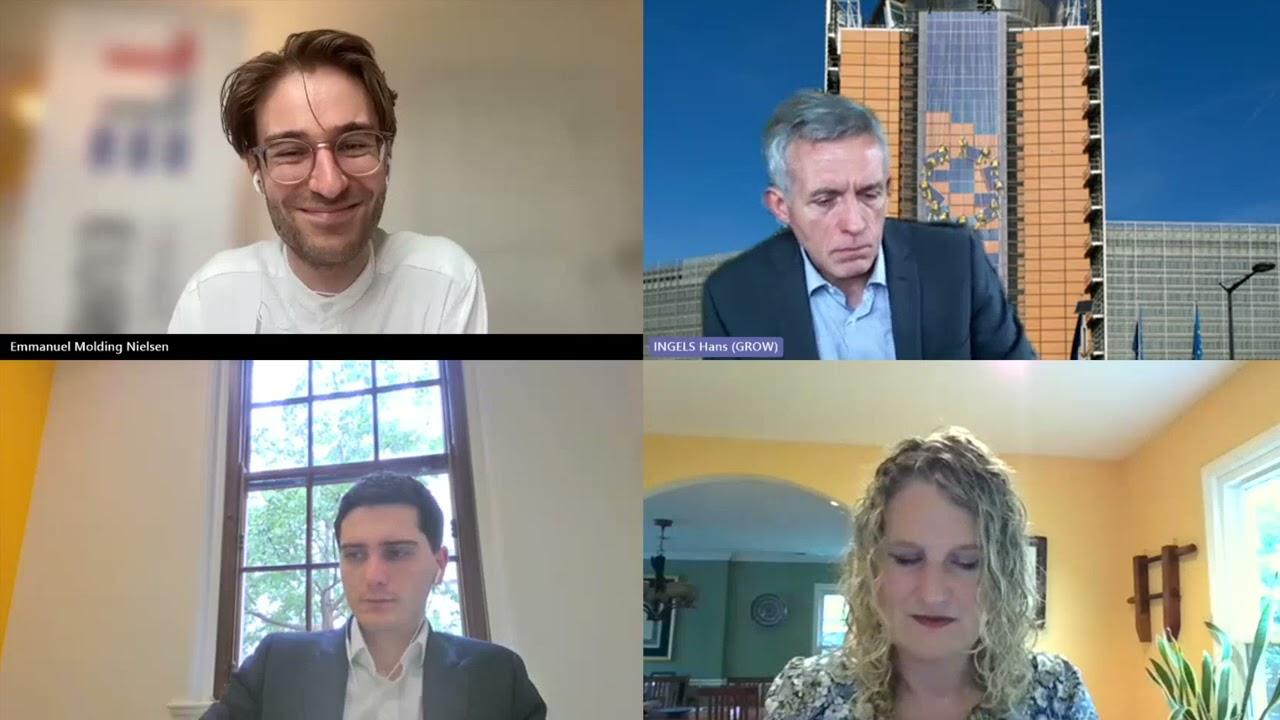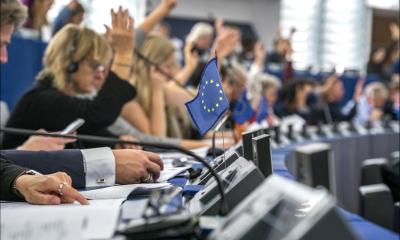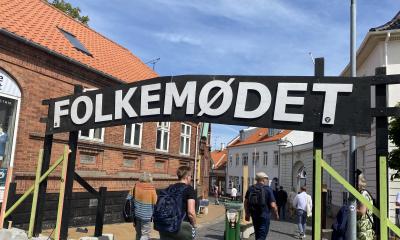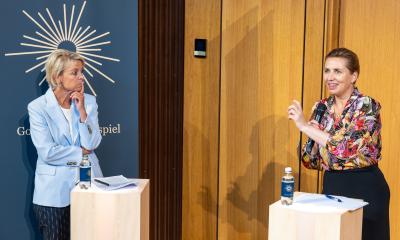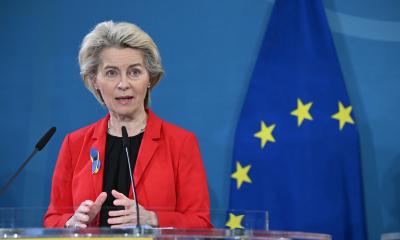High-level Insights: Biotech industrial policy – lessons from across the world.
On April 11th, 2024, Think Tank Europa invited current and former policymakers from the EU, UK, and US to discuss their recent initiatives in biotechnology and biomanufacturing.
These high-level insights summarize the key conclusions from the webinar.
A shared analysis of the challenges and opportunities of biotechnology.
The US, UK, and EU see similar opportunities and challenges in developing biotechnology and biomanufacturing across industries. According to the panelists, biotech has the potential to play a role in tackling global challenges related to health and the green transition across sectors as diverse as agriculture and the chemicals industry.
Yet, transitioning innovations from research to market presents numerous hurdles including regulatory complexity and gaps between the state of existing regulations and the pace of new technological development. Additionally, especially the EU and the UK face a fragmented financial environment. Across the EU, UK, and US challenges like skill shortages, public reluctance towards biotechnologies, limited biomass resources, and the need for robust intellectual property protections also represent obstacles to the development of the technology area. To overcome these challenges a whole-of-government approach is required.
Political cooperation, economic competition.
When it comes to biotechnology and biomanufacturing, the EU, UK, and US are interacting as both competitors and collaborators. The decision of the Biden-administration to develop its E.O. on biotechnology and biomanufacturing was in part a response to Asian and European countries moving ahead with their own biotech strategies. In this context, the US was motivated by a desire to maintain global leadership in biotechnology and biomanufacturing while recognizing the potential of the technology as a global endeavor. From the UK's perspective, international cooperation in research and development is essential, yet economic competition remains both healthy and necessary for development of biotech and biomanufacturing. Similarly, while European companies operate and compete on a global scale, there is a strong interest and practical need for international collaboration at the political level.
Security and economic security concerns loom large.
Both the US, the UK, and the EU recognize the need to promote biotech and biomanufacturing, while also protecting this rapidly developing technology area from a variety of threats. This includes security concerns relating to the potential for misuse of biotech, such as the misuse of sensitive genomic information, military-civilian dual use, as well as economic security related concerns. These risks underscore the necessity of creating the right framework conditions and guardrails for responsible innovation in biotech. Indeed, shared security concerns also create incentives for further political collaboration between authorities. In time, biotech innovation could help to mitigate some supply chain risks by replacing fossil-derived inputs to industrial processes with biological alternatives.
Regulating biotech – lessons learned?
Both the EU and the UK initiatives on biotechnology and biomanufacturing look to the US as an example of a jurisdiction that has taken promising steps towards regulating biotech. While there are challenges to the public acceptance of biotech, particularly in food-related applications across all jurisdictions, these challenges are more apparent in the UK and, notably, in the EU.
Nevertheless, the US faces challenges of its own in regulating biotech. As the field advances, new biotechnologies that cut across traditional regulatory categories are challenging the ability of authorities to regulate the biotech efficiently and appropriately. As such, work is being carried out in the US to foster cooperation between regulators across sectors. The UK and the EU are taking similar steps to coordinate work among regulators to account for technological developments at the cutting edge of the field, including potenital plans for regulatory sandboxes.
The initiatives discussed during the webinar represent early steps in developing comprehensive biotech and biomanufacturing strategies. All three initiatives identify the key challenges facing the development and commercialization of the technology area and outline initial steps towards addressing these challenges. In years to come, we can expect more initiatives in this area. Indeed, across all three jurisdictions, there has been a move toward promoting and protecting domestic manufacturing capabilities for critical technologies such as semi-conductors, batteries, and now biotech. Future initiatives in biotechnology and biomanufacturing, such as the European Commission’s recent proposal for a possible EU Biotech Act, could be modeled on previous initiatives like the Net Zero Industry Act.
PARTICIPANTS
Dr Carrie D. Wolinetz is Principal and Chair of Lewis-Burke Health and Bioscience Innovation Policy Practice Group and former Deputy Director for Health and Life Sciences at the White House Office for Science and Technology Policy, where she spearheaded work on the Biden-administration’s ‘Executive Order on Advancing Biotechnology and Biomanufacturing Innovation for a Sustainable, Safe, and Secure American Bioeconomy’.
Aaron Payne is International Policy Lead for Engineering Biology at the UK’s Department for Science, Innovation and Technology and was closely involved in the development of the UK’s ‘National Vision for Engineering Biology’.
Hans Ingels is Head of Unit in DG Grow of the European Commission where he has been responsible for advancing work on the Commissions ‘Biotechnology and Biomanufacturing Initiative'.
MODERATION: Emmanuel Molding Nielsen is Analyst at Think Tank Europa.
Biosolutions 2030 – Towards a paradigm shift in European agricultural and food policy. Financed by Novo Nordisk Foundation (NNF22SA0080353)
Tænketanken EUROPA indtager ikke holdninger som organisation. Denne tekst repræsenterer alene – som alle udgivelser fra Tænketanken EUROPA – forfatterens/forfatternes betragtninger.
